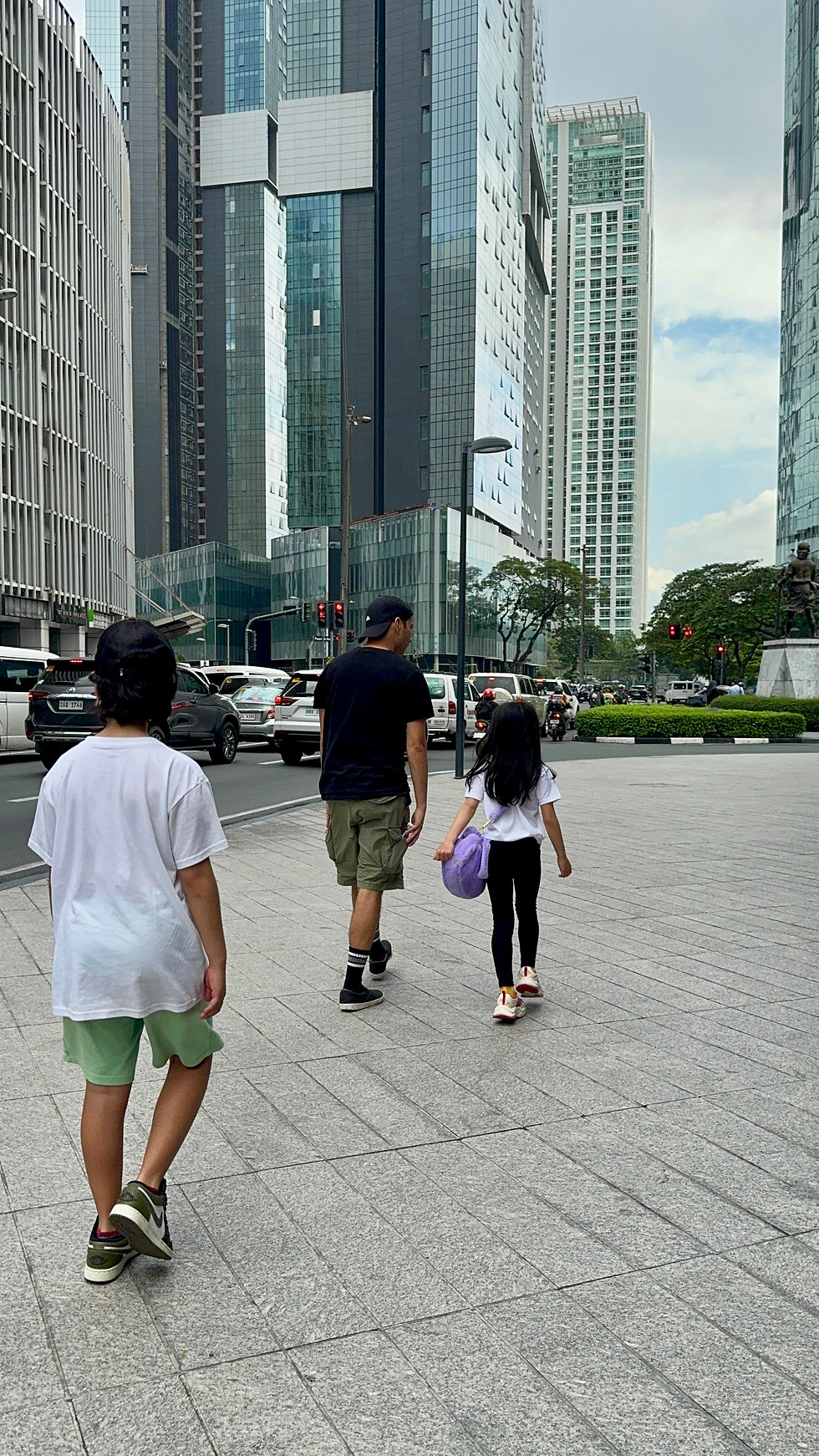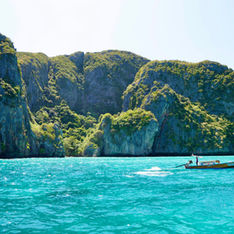Philippines 🇵🇭: Boracay & Manila
- hummblylife
- Sep 22, 2025
- 4 min read
Updated: Sep 23, 2025

Did you know that the Philippines has over 7,600 islands — but only about 2,000 are inhabited?
Traveling here with elementary-aged kids is not just about sun, sand, and sea — it’s also a chance to learn history and culture firsthand. From the white-sand beaches of Boracay to the cultural and historic energy of Manila, the Philippines offers an enriching experience for the whole family.
Fun Facts About the Philippines
A multilingual country – While Filipino and English are official, over 170 languages and dialects are spoken across the archipelago.
A global biodiversity hotspot – The Philippines is part of the “Coral Triangle,” one of the most diverse marine areas on the planet, home to thousands of species of fish and coral.
The Jeepney – The country’s most iconic public transport. These colorful minibuses were created from abandoned U.S. military jeeps after WWII.
Spanish history – The Philippines was a Spanish colony for more than 300 years. That’s why many people have Spanish surnames, and Tagalog includes words of Spanish origin (like mesa, ventana, escuela).
Rice lovers – Rice is the foundation of Filipino meals, eaten at breakfast, lunch, and dinner.
Karaoke culture – Though debated, it’s often said that Filipino inventor Roberto del Rosario created the karaoke machine in the 1970s. What’s certain: Filipinos love karaoke.
The Filipino smile – Known as some of the warmest and most hospitable people in the world, Filipinos rank among the happiest nations globally.
Practical Tips for Families / Worldschooling
Connectivity
Get an eSIM before traveling (Airalo, Holafly, Nomad), works well in Manila and Boracay.
Prefer a physical SIM? Globe and Smart have stands at Manila airport. Globe usually offers better coverage in Boracay.
Entry & Documentation
eTravel Card (Digital Arrival Card) is mandatory to enter the Philippines. Fill it out online within 72 hours before arrival: etravel.gov.ph.
Passport must be valid for at least 6 months.
Money
Currency: Philippine Peso (PHP).
Cash is important, especially in Boracay, where not all vendors accept cards.
ATMs are available but often have low withdrawal limits.
Health & Safety
Bring sunscreen and mosquito repellent.
Stay hydrated — heat and humidity are high.
Drink bottled water, not tap.
🌴 Boracay
Best time to visit: November–May (dry season). Avoid June–October (rainy, typhoon season).
Getting around: Motorized tricycles and e-trikes (electric), kid-friendly and practical.
Family-friendly beaches:
White Beach – Fine sand, calm waters.
Puka Beach – More natural, quieter.
Learning opportunity: Talk with kids about sustainability. Boracay shut down for 6 months in 2018 due to over-tourism, and today is a model of responsible tourism.
How to get there from Manila:
Flight to Caticlan (Godofredo P. Ramos Airport) – about 1h.
KLOOK Van (5–10 min) → Boat transfer (15 min) → Van to hotel.
Total: ~2 hours (plus waiting).
Note: Klook option includes the environmental & port fee (~₱300 per adult).
Where we stayed: "Feliz Hotel" ☺︎, highly recommended for families.

Nearby eats:
Restaurants: Gerry's Station 2, Steam Punk Burgers , Island Chicken Inasal Boracay
Desserts: Mango Mama
Coffee shops: Gratitude Cafe

🌴 Things to do in Boracay
Willy's Rock - So many little fishes around this iconic rock at the White Beach (Station 1). The kids really enjoyed exploring under the crystal clear waters and playing with the whitest sand they've seen!



D-Mall Shopping Area - Fun shopping area with fruit stalls, cafés, souvenirs, and a lively vibe.


Tambisaan Beach - At the southern area of the island, one of the best spots for snorkeling. There are also island-hopping boat tours that depart from this beach. At this quieter beach you will see more local families, kids playing, fishing boats. It's an excellent place to get to know the daily lives of local people.

Bulabog Beach - For water sports like windsurf and kitesurf. We didn't do any water sports but we did meet this new friend:

Puka Shell Beach - Scenic and quieter beach at the north side of the island. To get there you will need a trike ride, which is great because you will get to see more of the island life: local schools, markets, etc.

Manila
Manila, the capital of the Philippines, blends history and modernity at every corner. It is one of the most densely populated cities in the world, so be prepared for heavy traffic when navigating its streets!
For families, Manila offers parks, interactive museums, and local markets full of colors and flavors.

Transport
Traffic in Manila can be very chaotic!
Use Grab App (southeast Asia's Uber) for safe rides around the city.
Beware of transport time to and from the airport. It could be anything from 30 mins to 2 hrs depending on traffic!
Where to stay
Picasso Boutique Serviced Apartments spacious rooms, family-friendly.
Things to do in Manila
Intramuros - Spanish colonial walls, cobbled streets, Fort Santiago.
Rizal Park (Luneta) - Outdoor history park honoring José Rizal.
National Museum of Philippines - Free entry; archeology, art, and natural sciences.
Mall of Asia - One of Asia’s biggest malls, with seaside boulevard and family attractions.

Ayala Museum - One of our highlights in Manila! We discovered an artist we really liked: Fernando Zóbel. We also learned about the gold mines in the Philippines, the country’s history with different colonizers, and its path to independence. Highly recommended!



Philippines greeted us with smiles and hospitality everywhere we went! We hope we can go back someday to get to know more of this wonderful country! ❤️
🙏 Thank God for the Philippines. May His love grow in every island and every heart. ♥︎

Hope this information is useful!
Follow us on Instagram and share this resource with family and friends!
















































Comments